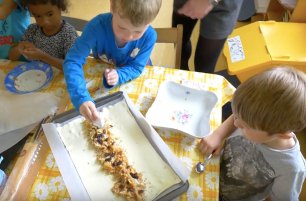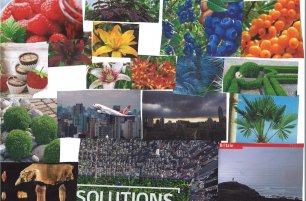Mones
Sorry, this article is only in Czech.

This week, our host Mariana Bečková chats with IMSP alumna Karolína Muchová. Born and raised in Prague, Karolína always knew she wanted to pursue her university education abroad. Press play to learn how IMSP prepared her for a rigorous high school experience and eventually, her choice to enroll at the University of Chicago in the United States. Between authentic one-on-one support and a personalized curriculum designed by IMSP teachers, Karolína shares how her experience with Montessori set her up for success as she spread her wings around the globe.
Read more
Introducing IMSP’s LIDOVÉ NOVINY, a Czech-language newspaper written, edited, and assembled by our Upper Elementary students. This project was inspired by renowned Czech writer Karel Čapek. Čapek, best known for inventing the word „robot“, was beloved for his versatile and multi-genre pieces. Bouncing between modern fairytales, short stories, travel-logs, and biographical work, Čapek also had a particular affinity for the feuilleton, a short newspaper essay designed, not only to inform the reader, but to amuse them as well.
Read more
Food Preparation activities are very popular in a Montessori classroom. Not only do children enjoy eating food they’ve prepared themselves, but they learn skills throughout the process.
Read more
“Social and emotional learning(SEL) is the process through which children and adults understand and manage emotions, set and achieve positive goals, feel and show empathy for others, establish and maintain positive relationships, and make responsible decisions.”
Read more